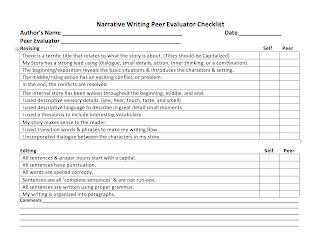Good Morning 6th Graders,
Today is a 'D' Day. Make sure you use the bathroom & sharpen your pencils. Check to see that you have everything you need for your morning classes.
Thank you
Mr. Trumble
ELA:
Do Now:
Standards:
Today is a 'D' Day. Make sure you use the bathroom & sharpen your pencils. Check to see that you have everything you need for your morning classes.
Thank you
Mr. Trumble
ELA:
Do Now:
- Write tonight's homework down in your agenda
- Bring me your Grade Report
- Hand in Anthology Covers (if you designed one)
Homework:
- Rehearse your story
- If your illustration is not done, FINISH IT!!!!
- Use Card Stock & Design the Cover to our Anthology (Optional- only get a piece of Card Stock if you are serious about designing a cover)
Anthology of
Personal Narratives
2017
Writers Workshop Session #11
Standards:
- W6.3 - Write narratives to develop real or imagined experiences or events using effective technique, relevant descriptive details, and a well structured sequence of events
- W6.4 - Produce clear and coherent writing in which the development, organization, and style are appropriate to task, purpose, and audience
- W6.5 -With guidance and support from peers & adults develop and strengthen writing as needed by planning, revising, editing, rewriting, and trying a new approach.
Publication Day:
1. You must show me your handwritten copy of your narrative. Then...

1. You must show me your handwritten copy of your narrative. Then...
- Open a Microsoft word document
- Begin by changing the font size to 14
- Type your heading
- Assignment = Personal Narrative
- Skip a line after your heading and give your story a title. DO NOT center your title by using the space bar. I will show you all how to center the title later.
- Skip a line after your title and begin typing the beginning of your story. Be sure to indent. To indent - Hit the 'tab' key
- The only time you should use the 'return' key or the 'enter' key is at the end of a paragraph. If you are not at the end of a paragraph, just keep typing. They computer will automatically drop down to the next line when you run out of room.
- It is expected that you will type with both hands, and you should try to use more than just your two index fingers. Typing is an essential skill that you need to develop. If you type with one hand or just your two index fingers you will never be able to become a fast typer.
- Do not worry about spelling errors or typos. It will slow you down if you stop at each error. You can go back and fix those later.
- Be sure to indent each new paragraph.
- Use quotation marks whenever you use dialogue
- Continue working until your entire narrative is typed. When you are done proofread your writing and fix any typos and spelling errors.
1. If you finish you will print one copy of you narrative writing.
2. You will then have one last opportunity to evaluate your writing and get feedback before final publication.
3. You will use the narrative writing checklist and the checklist in your ELA journal to make final improvements.
4. Once it is ready for publication I want you to copy and paste your narrative to kidblog. Title your entry "My Personal Narrative"
5. Last, work on your full color, detailed illustration

RTI - D Day 11/1/17
Main Idea & Details
RI6.1 - Cite textual evidence to support analysis of what the text says explicitly as well as inferences drawn from the text.
RI6.2 - Determine the central idea of a text and how it is conveyed through particular details; provide a summary of the text distinct from personal opinions and judgements
Whole Group:
Read the article, "How Donald Duck and Peanuts Saved Trick-or-Treating"
*As we read I want you to think about these questions:
1. What is the Main (or central) Idea?
2. What evidence makes me think that?
Partner work:
Step 1 - Get together with a partner
Step 2 - Reread through the article so you can figure out the main idea and the details. You may alternate paragraphs, or alternate sections as you read. Write small inferences and questions you have in the margin.
Step 3 - Underline the evidence from the text that supports your inference.
Step 4 - Look at the inferences you wrote about each section. At the end of your article write a global inference, or MAIN IDEA based on all your smaller inferences you already wrote.
Step 5 - Complete the Quiz that goes with your article & Complete the Main Idea Graphic organizer. (Always write in complete sentences)
*** I will come around to each group during the last 10 minutes and ask:
1. What is the article about?
2. What is an inference you made?
3. What evidence led you to make that inference?
4. What is the main idea?





No comments:
Post a Comment